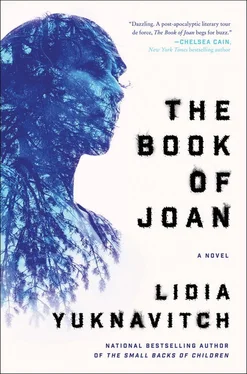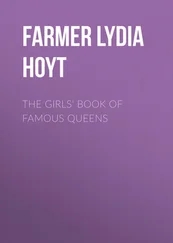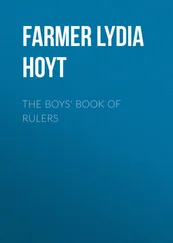“The protest we mounted, out here among the stars and radiation, excited me to no end. It became an underground sensation. My work did not so much gain in popularity, rather, it set people on fire.” The word fire seems a fitting place to pause my audio recording.
In the dim light of the CIEL room, in this last year of my life, I feel the skin between my shoulders ache, from my neck to the bottom edges of my rib cage. It reddens. And swells. I stare at my torso in the mirror and it almost seems to pulse. To be burned alive with meaning; the opposite of Joan’s death. A fire to replace what used to burn between our legs. But I already know the endgame of the battle I am waging. I already know what I want.
The spider—I can feel it at my neck. I capture it by cupping my hand at the very spot where I would wear one of my own skin grafts. I consider squeezing it dead in my palm. What’s one more dead spider clone? But I do not. I carry it carefully in its hand house to the ridiculous stick of a fern. It crawls up the shaft, then immediately dangles from it with a silken thread.
The will to live is so strong. I feel the sporadic waves in my ears; the blasted song in my head is receding but not leaving.
I want her story back.
The one that was taken from her and replaced with heretic. Eco-terrorist. Murderous maiden who made the earth scream.
I want to use my body to get it.
My door juts open without warning, sending the spider on the fern skittering across its web. I quickly draw an azure silken robe around my night’s work. My body stings and itches against the fabric. I hear his bellow before I see him.
“Christ! Come here this instant, you reeling-ripe dove-egg. Get here and lay me a kiss. I do believe I’ve outdone myself today.”
No matter how often he calls me “Christ” instead of Christine, it makes me smile. And every time I see him, my mind cleaves, half shooting back to the past, half lodged in the present, shaking.
What is a love story?
Every time I see him, which is every morning and day and night, I think of all the love stories that go untold. The broken love stories, the damaged ones, the ones that don’t fit the old tropes. Did any real life love ever fit a trope? My body is stabbed through with a recurring flashback. How deeply I fell for him on Earth when I was fourteen. I can see us both, gangly and awkward, both of us with shoulder-length hair, all elbows and shoulders and knees, really we looked like siblings. How we spent every morning and all day and most of all the nights together, in the woods or at riverbeds or at school or holidays or climbing out of our bedrooms and meeting up for invented adventures or painting or drawing or reading or stargazing or walking and doing nothing but breathing—I remember eventually feeling like he was the very air I breathed, the matter of my molecules, the pulse at my wrists and neck and the blood in my ears, and as my body surged from girl to woman, I idiotically lunged at him one day after school in a plain and grassy field, my face filled with girl-flush, my legs shaking, my arms grabbing at him, I half smeared my smile into his and wrong kissed him. And then he stiffened and shot away from me—the look on his face made an uncharitable distance between us, so vast, so vast, like Neptune, that ice giant.
“I’m sorry, I’m so sorry,” is all he said, and my first and deepest love of my life, my all-consuming beloved, froze in front of me as the beginning of a man who did not love women. Physical fact. Suddenly even his skin looked like it was pulling away from me.
“I love you,” he said backing away, his eyes drowning in their sockets. “I love you,” he said running from me. And my world ended.
But my love didn’t. Not then, not into my marriage later in life, not now. But there is no word or body for it. We simply both ended up through a trick of fate or fortune together on CIEL. And though we would never be lovers, for different reasons now, neither of us was without desire. His bloomed into a symbolic unending lasciviousness. Mine atrophied into an ache I’ll take to my death.
Now he squeezes his former desire into old dead languages and base, carnal, ever-more obscene utterances as well as objects and technologies, like a fuck-you to this idiotic space-condom we live within.
I burn.
One might say we are desire’s last stand.
There the man stands—although the word man only approximates the beloved creature before me. For he has fully embraced the embodiment of creature, having lost all heart with regard to humanity up here. For clothing he wears only shoes, shiny pointed black boats fit for a dandy in any age. His skin shines the gleaming waxy white of years of skin grafts, his head is as bald as an infant bottom, yet bulging here and there with protruding, irrational grafts. His watery blue eyes are still visible beneath the odd furrows and folds of flesh. He holds his arms out theatrically, thrusts his hips toward me to display himself, and smiles. He could become a gargoyle, and I’d yet love him.
Indeed, what is before me is something of a grotesque. Somewhere near where his stomach should be, I see what could only be a new invention: an intricate belt, silver, bloodred, and black, secured by leather straps and silver chains that web across his chest and shoulders like some deranged spider’s design. In front, at the sides, and it looks to me even in the rear, the belt grows appendages about a foot in length. Each appendage looks to be soldered and carved with great attention and detail—each extends out away from his body enough so that every move he makes creates a kind of half-dangling, half-dancing effect. Two of the jutting objects are more or less cylindrical, ending at their tips with pewter-balled roundness. The other two—shaped a bit like gourds, and as splendid as the cylindrical appendages in color and shine and detail—dangle from the harness, and seem to have small silver motors attached to them. He flips a couple of switches and his hips begin to buzz and whir like some gigantic and wrong insect. For a moment I think he might take flight.
A great shift in the air and space of the room accompanies his entrance. “Well?” he shouts above the din, gyrating and whizzing.
I bring my hand to my neck in mock surprise. “Jesus, Trinculo, have you been injured? Or are you being punished? What on earth is all”—I gesture around him—“that?”
“Ah!” he shouts, stepping toward me gingerly, “but we’re no longer on the Earth, now, are we? This, my full-gorged lady,” he says, approaching, “is the answer to your prayers.”
“I haven’t prayed for years,” I say, ducking around a chair to avoid him. There is no game I will not play with him. No pornographic desire I won’t willingly perform.
He growls. “Come ride me, dewberry.” On Earth, when we’d been so young, he’d taken delight in a digital application that generated medieval obscenities and slurs. He’s carried the habit up into CIEL, into our idiotic adulthood, our doomed present-tense, and I love every word of it. “I’ll bet all the sun in the system I can make you scream god before the night’s gone. But say my name again! I love to hear it.”
“Trinculo!” I shout, then laugh and come back around the chair. I try to embrace him, but find it impossible. “Now, turn that thing off and sit down. Talk to me like a man.”
“Like a what?”
Just then we hear the mechanized sound of the evening gong, signaling the coming arrival of night sentries for the evening lockdown. “Shut it off,” I hiss, wincing at the thought of him being carried off to solitary, yet again. Though his eyes remain playful, the cost of his years of imprisonment and torture is beginning to show. The veins at his temples look crooked and rubbled. His hands shake when he tries to be still. Sometimes, his jaw locks midsentence.
Читать дальше












